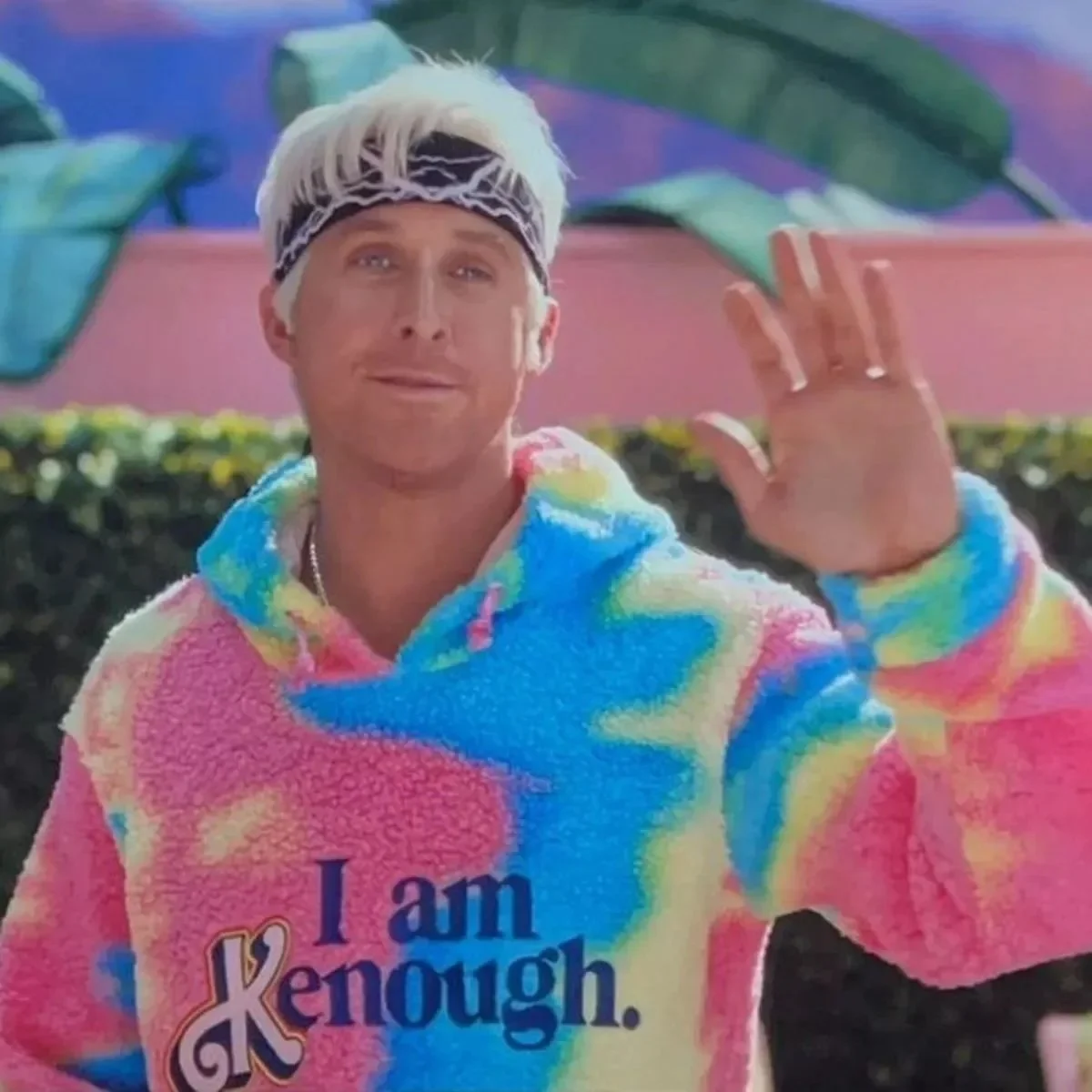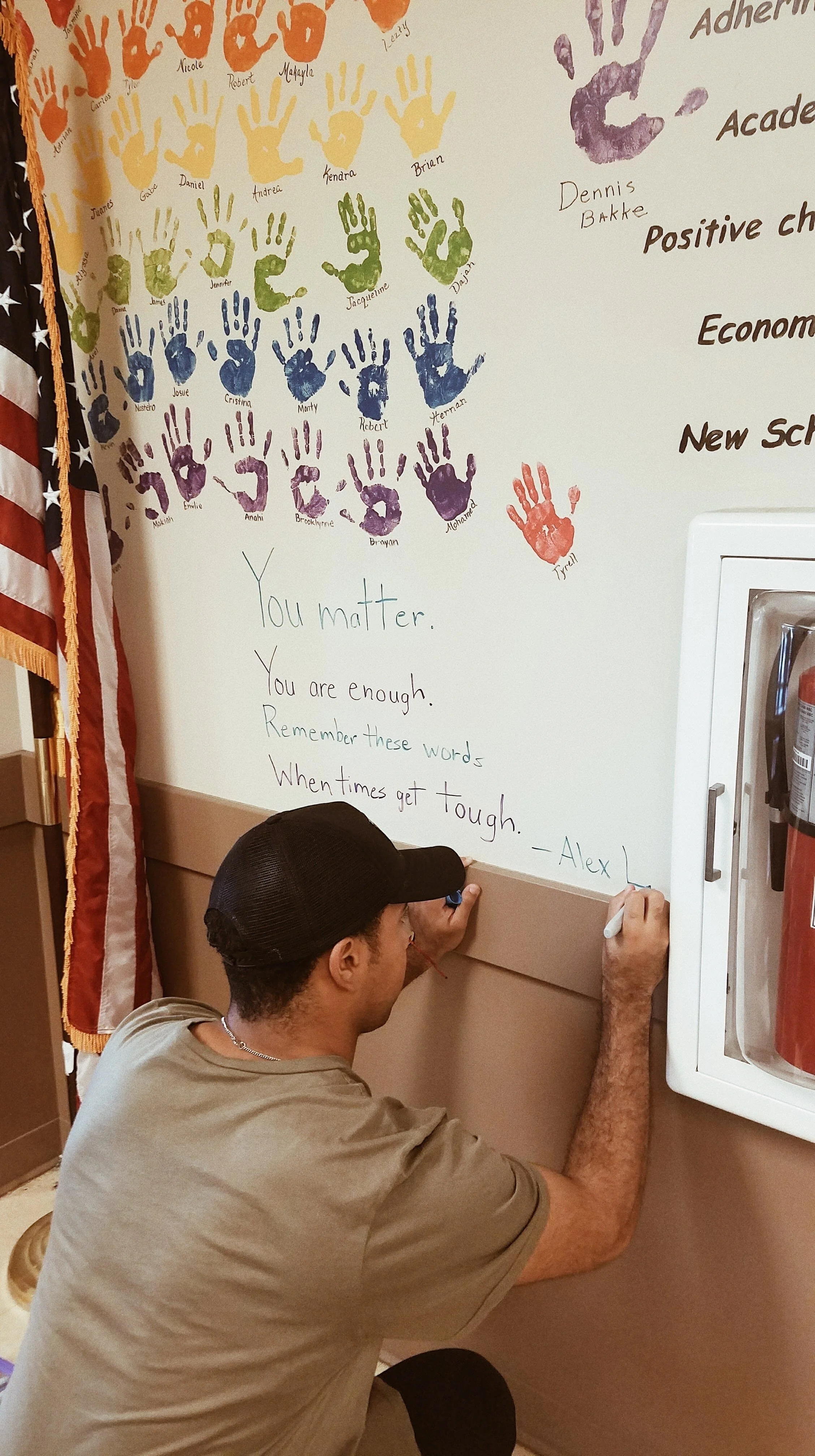Have We Heard Enough "You are Enough"?
The Barbie Movie, Ken & "I am Kenough"
Kash called me asking where I was going. Hurriedly, I said, “I’ll text you,” as I tried to leave the airport bathroom as quickly as possible. At the baggage carousel in John Glenn Columbus International Airport, Kash and my coworkers were waiting for their suitcases. I mistakenly left mine 500 miles away in Newark, New Jersey. But I couldn’t worry about that now. I was jetting toward Elizabeth’s car in the passenger pickup area for us to meet our friends for a 6:45 P.M. showing of Barbie, Greta Gerwig’s new Warner Brothers feature film.
We arrived at the theater to a sea of pink hues—hot pink, baby pink, and of course, the aptly named Barbie pink (hex code #DA1884 if you were wondering). I didn’t know what to expect from the movie. But ever since I saw the leaked photos of Margot Robbie (as Barbie) and Ryan Gosling (as Ken) in their neon yellow roller blades, I knew the movie was going to be a spectacle.
I’ll try to refrain from sharing the plot as much as possible, but I will say Barbie is incredibly well done. While much of the movie unsurprisingly focuses on Barbie, Ken, whose line of dolls The New York Times’ Willa Paskin refers to as Barbie’s “accessories,” is the character whose storyline surprised me the most.
Without saying too much, Gosling’s Ken learns to find value in and of himself—apart from Barbie. The iconic image is blonde-haired Gosling looking self-assured in a rainbow, tie-dye hoodie that reads in the Barbie font, “I am Kenough.” Out of context, and maybe in context, this could be viewed as the definition of corny. I even had a moment while watching the movie where I thought to myself, ‘Damn, I kinda want that hoodie.’ But I decided against it—probably for many of the reasons someone might have scoffed at the scene.
“You are enough” is spoken by therapists and pastors alike—not to mention the random text you might get from your mom or a friend before taking a final exam you’re worried about passing. It means everything and nothing at all. After watching the movie, I couldn’t help but wonder, have we heard enough of “you are enough”?
As a college student trying to be the best Christian I could be, I attempted to follow what I understood as God’s rules for my life as best as I could. When I eventually failed to live up to these unrealistic expectations over and over and over again, I doubted not only my self-worth but my salvation. How could God love me if I couldn’t even follow simple instructions?
“You are enough,” friends would tell me. “Nothing can change God’s love for you.” And then I’d hear other Christians say, “You are not enough. That’s why Jesus died for you.” This whiplash left me wondering what the truth was. Am I loved regardless of my actions, or am I incapable of being good, which is why I’m in need of saving? Still, it felt healing to believe I couldn't make God love me more or less; I’m already fully loved—exactly as I am. I am loved and worth loving.
“You matter. You are enough. Remember these words when times get tough.” I began sharing this message on note cards on people’s car windows. In a wild turn of events, this project I named Car Window Poetry got picked up by NBC Nightly News and bloomed into something bigger. I shared, “You are enough,” in classrooms and even other countries. Strangers began sharing these words along with their own. Not only did I believe people needed to hear this message, but they told me so. They needed to hear they were good enough.
As the years went on and the violent systems we’re under became even more hellbent on destroying us, I noticed how the same people that often touted kindness enabled these systems and those who uphold them. I began to distance myself from Car Window Poetry. As this project that was once my identity became less of a priority, I wondered who I was apart from it. “You are enough,” I heard friends say as I considered what mattered most.
“In an antipatriarchal culture males do not have to prove their value and worth,” wrote bell hooks in one of my favorite books of hers, The Will to Change: Men, Masculinity, and Love. “They know from birth that simply being gives them value, the right to be cherished and loved.”
In researching for this essay, I asked my Instagram followers what the phrase “You are enough” meant to them. Some of my favorite responses shared how the message felt too much like something you’d see on an Instagram infographic or how it was used by Christian churches to manipulate them. The type of statement used to temporarily appease but is ultimately based on the conditions of whoever says it. You are enough as long as they can understand you, agree with what you believe or how you present yourself, or as long as you look like them.
One of my dear friends shared how they believe the phrase is incomplete, and I think I agree. It’s not enough to say, “You are enough.” We owe each other a care that says, “You don’t have to earn my love. I accept you exactly as you are and hope to give you grace in your living and changing.” As my friend wrote, “Your feelings and experiences are valid.”
Don’t hate me for saying it, but I started feeling more connected to this message of Enough when I began exploring the Enneagram. I’m a megachurch survivor. You can’t blame me for having an Enneagram phase. Each test I took, each book I read, and podcast I listened to seemed to reveal the same thing: I’m a three. If you’re unfamiliar with the different numbers, threes are typically characterized as finding their identity and value in achievement. As children, we’re often shown what we do is who we are, that we’re accepted for our accomplishments.
For people who constantly question their value, “You are enough” can be healing and reassuring. I know it was for me. I felt those same feelings come back when watching Barbie. While Ken explained to Barbie why he felt inadequate, he said, “But it’s Barbie and Ken.” Barbie replied, “Maybe it’s Barbie, and it’s Ken.” My eyes immediately filled with tears. Something powerful happens when someone gives you permission to love yourself.
In Gerwig’s interview with Paskin for The New York Times, Gerwig, who grew up Christian, describes going to Shabbat dinner at her Jewish family friends’ house. At dinner, the family’s father would place his hands on Gerwig’s head and bless her just as he did his own family.
“I remember feeling the sense of, ‘Whatever your wins and losses were for the week, whatever you did or didn’t do, when you come to this table, your value has nothing to do with that,’” said Gerwig. “‘You are a child of God. I put my hand over you, and I bless you as a child of God at this table. And that’s your value.’ I remember feeling so safe in that and feeling so, like, enough.”
In her book, The Gifts of Imperfection, Brené Brown writes, “Sufficiency isn’t two steps up from poverty or one step short of abundance. It isn’t a measure of barely enough or more than enough.” She continues, “Sufficiency isn’t an amount at all. It is an experience, a context we generate, a declaration, a knowing that there is enough, and that we are enough.”
While we’ve distanced ourselves from much of what we know as Christianity, Elizabeth and I still wanted our religious wedding guests to experience something familiar during our ceremony while helping our non-religious guests feel at home. Our officiant, a former pastor, rooted his blessing in a phrase that felt like home to us: the child of God in me sees and honors the child of God in you.
I don’t know if we’ve heard enough of “You are enough.” I know some of us have. I also know some of us could afford to hear it more. My hope is we show up for one another—and ourselves—in a way that affirms our sufficiency, that acknowledges the value and worth within each of us. I want my presence to feel like a hand placed on the head of those I encounter as if to say, “You are blessed and welcome here.”
We’re all just trying to get to where we’re going anyway. You’re not missing anything.



